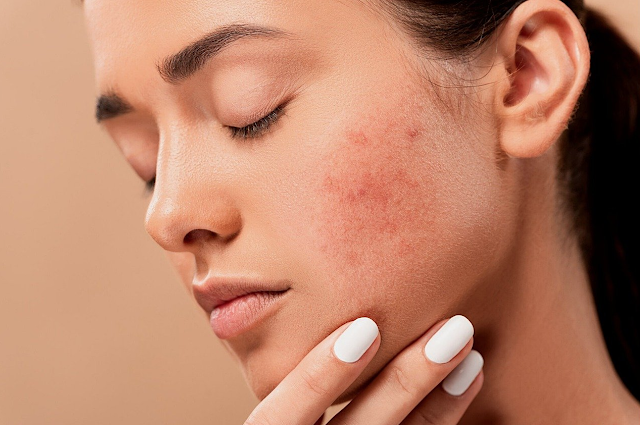Internal Approach to Acne Management
Internal Approach to Acne Management
Acne is a condition that affects almost everyone at some point in their lives. For others, acne may be a socially degrading illness... and it's not only in adolescents; adult sufferers are also affected. According to studies, 20% to 25% of men and 40% to 45% of females suffer from long-term outbreaks of acne.
Acne treatments can make things worse and even damage the skin if they're not used correctly. The truth is, most individuals either scrub their skin vigorously in the hopes of getting rid of all of their impurities, or they spot a pimple and immediately want to squeeze it to death. For two reasons, this is a bad strategy. First and foremost, pinching your skin is a bad idea since you're hurting it. Acne scars develop so easily because our skin is so delicate, therefore pressing pimples should be avoided at all costs. Second, squeezing a pimple or scrubbing the skin vigorously forces some of the sebum (the oil responsible for the acne) back into the pore and down the hair follicle shaft. An infection might result from this additional swelling and obstruction, which could exacerbate the condition. So instead of enduring one agonizing experience, you're forced to endure two.

In order to better comprehend how acne develops, we may say that it occurs as a consequence of a skin pore being obstructed. Dead skin cells and/or excess sebum clogging the hair follicle are the most common culprits. In addition to nourishing the skin and hair, sebum is an essential component of human sebaceous glands. There is no substitute for it; without it, your hair and skin would be weak and fragile. It is possible that the skin cells do not shed uniformly, resulting in a blockage, even though your body replaces its skin constantly. There is an ongoing production of sebum (oils) in the hair follicle, and when these oils cannot escape through the pore, they back up in the follicle, swelling develops, and a pimple is formed!
Acne therapy is advancing at an incredible pace. In the 1980s and 1990s, the most effective acne treatments were chemical-based ones. Some were quite abrasive to the skin, while others worsened the condition. Recent advances in science have made it possible to better understand the causes of acne and develop treatments that address the root of the issue rather than just covering up symptoms.
So, what is the best technique to deal with pimples? Obviously, the ideal acne treatment for you is the one that gets rid of your issue fast and without causing any negative side effects. So many things to pick from, as well as a variety of diverse techniques and rationales, make this difficult. Some believe that all acne is caused by hormonal imbalances, while others believe that it is a result of poor skin care and hygiene practices. Reality implies that these two elements are intertwined. Because the human body is an ever-changing entity that needs a sense of equilibrium, the greatest acne treatment may be one that takes this reality into account.
The process of deciding on a solution is more involved. As an example, what is the best acne treatment for adults? Acne Treatment Products that claim to be the best acne treatment products will have a lengthy history of customer feedback, comparisons to other brands/solutions, and promises about how long it will take to clear your skin of acne. Acne remedies aren't a quick fix, and those that give you the truth will tell you that there isn't a single product that will do the trick. They'll also warn you that chemical products have adverse effects, but natural treatments have none at all.
With its emphasis on both external health and inward healing, the Zenmed approach is an ideal match for this description. It's more like an acne cure and skin care system than a harsh skin tonic. Acne treatment is combined with a skin care regimen, saving you time and money. Swelling and acne may be alleviated by using a combination of treatments that simultaneously clean and feed the skin.
Post a Comment for "Internal Approach to Acne Management"